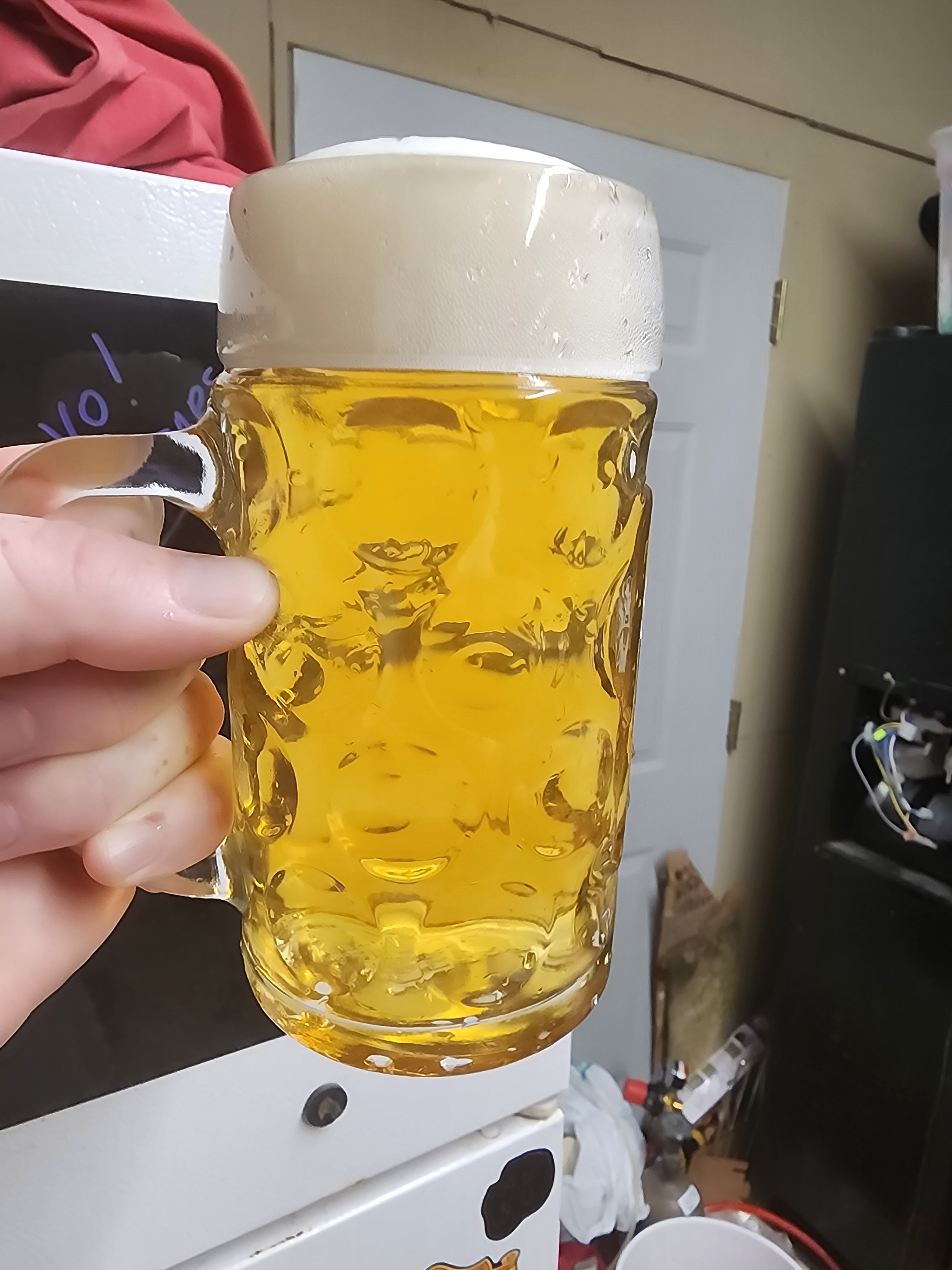I get a lot of fruit from the WLP860.I just kegged this recipe using wlp860 dry. The mash was 90 min at 149. I did make a 2L 1.040 starter since that was significantly cheaper than buying 2 dry packs. Wlp860 dry has a very specific nose on it. Its a very sweet nose and really mutes everything but that malt when it ferments. At least that was from the fermenter samples. Its been in the keg a little over 2 days now and this is really bitter, and almost no nose, but clearing. My guess is lagering will probably smooth this out but we will see. I probably got a sample of all the crud thats supposed to settle out. Lagering has an odd way of bringing everything together.
Anywho I'm going to dose with gelatin tomorrow and let ride until King of the Hill comes out. So far this time is the only time Ive brewed this recipe without something going massively wrong. Both this and Bells Two Hearted are my hell batches. Every.....single.....time
That said the sample from earlier was very crisp!
This beer is named King of the Helles! Ill post an update once this gets officially tapped
I don't get much hop profile when using WLP860 either.
Leaves a residual sweetness and a reasonable german "beer" flavor.
I will probably leave WLP860 only for a Helles. I prefer other strains for other german lagers.







































